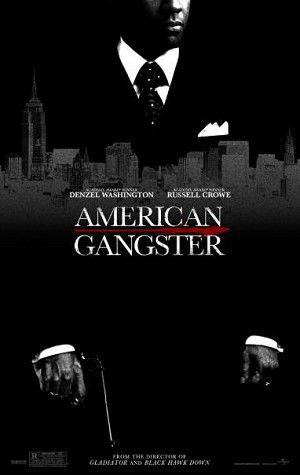Movie Review: ‘American Gangster’ packs much more than it can punch
Published 9:24 am Thursday, November 8, 2007

- Movie Review: 'American Gangster' packs much more than it can punch
Ridley Scott’s “American Gangster” is an ambitious film. The title alone says it all.
Preceded by that ambiguous statement of artistic freedom – “based on a true story” – the film depicts the rise and fall of Frank Lucas (Denzel Washington) who ruled the 1970 Harlem heroin epidemic by smuggling pure opium from Asia.
Trending
It simultaneously follows the investigative and sometimes personal exploits of Richie Roberts (Russel Crowe), a Jewish cop turned lawyer who pursues Lucas.
Roberts and Lucas spend the bulk of their screen time in their own separate worlds, the gangster amassing his family empire while the cop struggles to do the right thing.
It’s a bad time to be a good cop, made all too clear when Roberts and a partner are shunned for actually turning in $1 million from a stakeout.
From a veteran director who has tried his hand at many genres, “American Gangster” is Scott’s first take on the mobster/crime flick.
The film borrows heavily from its classic predecessors – “The French Connection,” “The Godfather Part II” and the works of Martin Scorsese quickly come to mind – without adding anything new.
It’s true to formula. And while drawing from a powerhouse of acting talent, the dialogue rarely escapes the bounds of feeling like literature.
Trending
Despite its 157-minute running time, the story feels like it’s rushing along too quickly.
There are too many montage sequences – shots of money being counted and drugs being packaged – and not enough moments in which the action slows down enough to get a real sense of what truly lurks beneath Lucas’ cool exterior.
Washington’s character is a walking contradiction, but more confusingly than interestingly so.
The film starts off with its most violent image, Lucas setting a man on fire before putting him out of his misery with a few bullets. We know he has the cold-blooded capacity to kill.
But aside from a few moments, the violence in “American Gangster” – arguably a grim and important element of the story – is muted and overlooked.
Washington’s performance hits so forcefully on Lucas’s family and capitalistic values, and only at one point does Roberts point out how the man’s selfish actions led to the tragic deaths of so many “customers” addicted to his “product.” To flirt with glorifying Lucas perhaps is a mistake.
Criticisms aside, the film looks great – a credit to Scott’s tried-and-true visual style. And the story is entertaining enough, with many more elements than can fit in this review.
By its ambition, however, the film begs to be measured at a higher standard than most, making the end product a bit disappointing.









